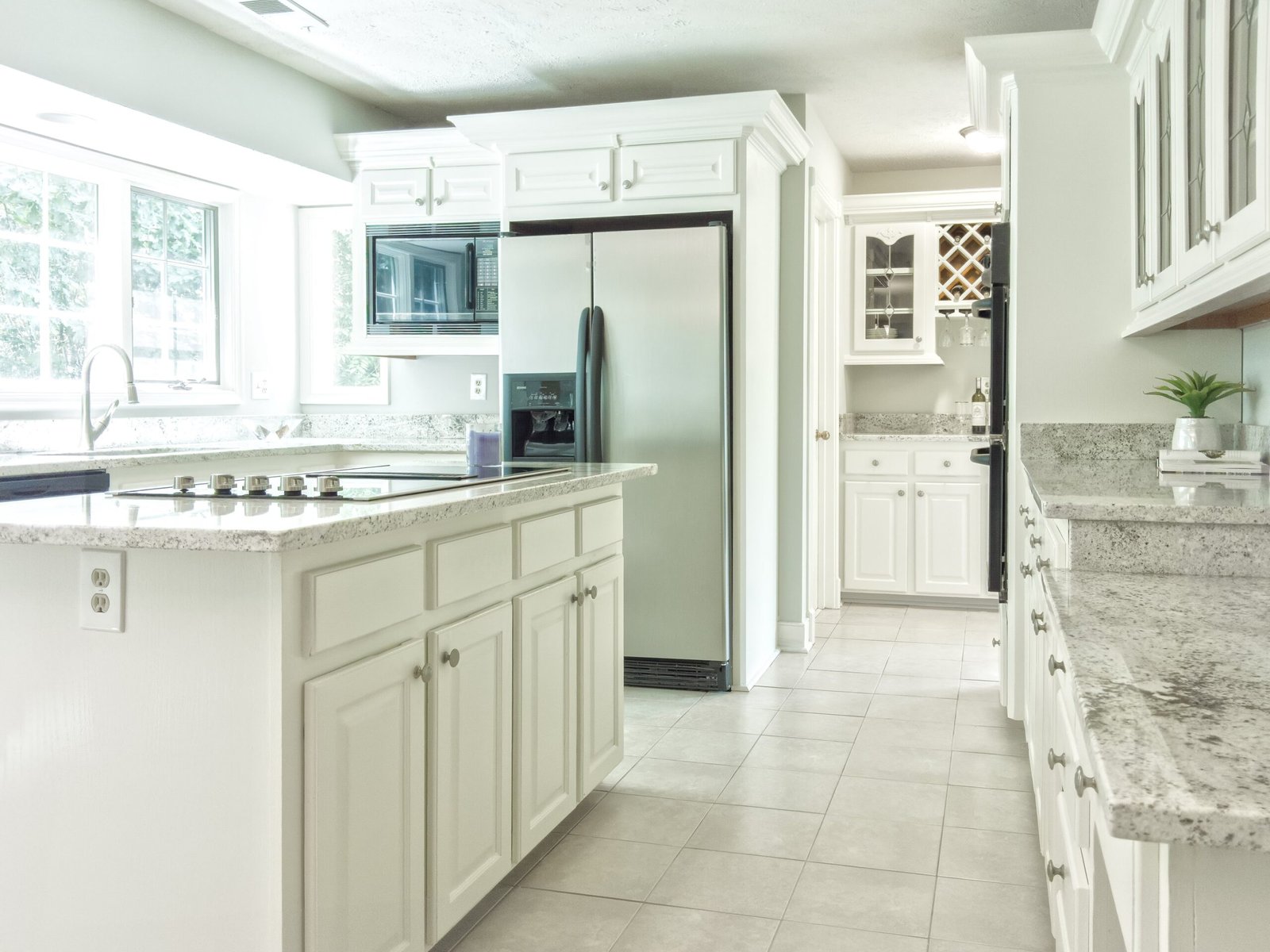So, you’re thinking about buying a house? That’s exciting! Before you take the plunge into the world of homeownership, it’s important to have a good grasp on the different types of home loans available to you. From fixed-rate mortgages to adjustable-rate mortgages, and everything in between, navigating the world of home loans can be overwhelming. But fret not, because in this article, we’ll break down the different types of home loans and help you understand which one might be the best fit for your needs. So grab a cup of tea and let’s dive into the world of home loans!

Overview of Home Loans
Definition of Home Loans
Home loans, also known as mortgages, are financial products that enable individuals to purchase or refinance residential properties. These loans allow borrowers to borrow a large sum of money from a lender, which is then repaid over a specific period of time, usually with interest.
Importance of Home Loans
Home loans are essential for most people’s ability to afford a home. Since buying a property outright is often financially out of reach for many individuals, home loans provide an opportunity to make homeownership more achievable. They offer the flexibility to pay off the loan over a period of time and allow individuals to build equity in their property. Home loans also stimulate the housing market by making homeownership accessible to a wider range of potential buyers.
Conventional Loans
Definition and Overview
Conventional loans are mortgage loans that are not insured or guaranteed by the government. These loans are offered by private lenders such as banks, credit unions, and mortgage companies. Conventional loans are typically suitable for borrowers who have good credit scores and can make a significant down payment.
Pros and Cons
One of the advantages of conventional loans is the flexibility they offer. Borrowers may be able to choose from various loan terms and down payment options. Furthermore, private mortgage insurance (PMI) may not be required if the borrower can make a down payment of 20% or more.
However, conventional loans may have stricter requirements compared to other loan types. Lenders typically expect a higher credit score and a lower debt-to-income ratio for borrowers. Additionally, a larger down payment may be necessary to secure more favorable interest rates.
Requirements
To qualify for a conventional loan, you’ll typically need a good credit score, usually around 620 or higher. Lenders will also evaluate your debt-to-income ratio, employment history, and savings for the down payment and closing costs. While a down payment of 20% or more is ideal, some lenders may accept lower down payments, but this usually requires the borrower to pay for private mortgage insurance (PMI).

FHA Loans
Definition and Overview
FHA (Federal Housing Administration) loans are mortgage loans insured by the government. They are issued by approved lenders and are designed to help borrowers with low to moderate income levels and with less-than-perfect credit scores. FHA loans typically require a smaller down payment compared to conventional loans.
Pros and Cons
One of the primary advantages of FHA loans is the low down payment requirement. Borrowers may be able to qualify for an FHA loan with a down payment as low as 3.5% of the purchase price. Additionally, FHA loans are often more lenient with credit requirements, making them accessible to borrowers who may not meet the strict criteria of conventional loans.
However, FHA loans come with certain drawbacks. Borrowers are required to pay an upfront mortgage insurance premium (MIP) and an annual mortgage insurance premium (MIP) over the life of the loan. This increases the overall cost of the loan. Also, FHA loans have loan limits, meaning there is a cap on the maximum loan amount you can borrow.
Requirements
To be eligible for an FHA loan, borrowers typically need a credit score of at least 580. However, borrowers with a credit score between 500 and 579 may still qualify with a higher down payment requirement. Debt-to-income ratio, employment history, and proof of steady income are also considered. Borrowers will need to pay the upfront and annual mortgage insurance premiums.
USDA Loans
Definition and Overview
USDA (United States Department of Agriculture) loans are mortgage loans designed for rural and suburban homebuyers with low to moderate income levels. These loans are guaranteed by the government and issued by approved lenders. USDA loans offer favorable terms and often require no down payment.
Pros and Cons
One of the major benefits of USDA loans is the option for zero down payment. This makes homeownership more accessible for borrowers who may not have the funds for a significant upfront payment. Additionally, USDA loans typically have lower interest rates compared to conventional loans.
On the downside, USDA loans have property eligibility requirements, as they are specifically designed for rural and suburban areas. Borrowers must also meet income limitations to qualify for these loans. Furthermore, USDA loans require payment of upfront and annual mortgage insurance premiums.
Requirements
To be eligible for a USDA loan, borrowers must meet income limits designated by the USDA for their specific area. The property being purchased must also meet USDA eligibility criteria, which typically includes being located in a rural or suburban area. A credit score of at least 640 is commonly required, but exceptions may be made based on other factors.

VA Loans
What are VA Loans
VA (Veterans Affairs) loans are mortgage loans available to eligible veterans, active-duty members of the military, and surviving spouses of veterans. These loans are guaranteed by the Department of Veterans Affairs and offered by approved lenders. VA loans offer competitive interest rates and often require no down payment.
Benefits
VA loans provide numerous benefits to eligible borrowers. One of the main advantages is the opportunity to purchase a home with no down payment required. VA loans also have more lenient credit requirements compared to conventional loans, making them accessible to a wider range of borrowers.
Furthermore, VA loans don’t require borrowers to pay for private mortgage insurance (PMI), which can result in significant savings. The Department of Veterans Affairs also offers assistance programs for struggling borrowers, including options for loan modifications and foreclosure avoidance.
Qualifications
To qualify for a VA loan, borrowers must meet specific eligibility criteria set by the Department of Veterans Affairs. Typically, this includes being a veteran, an active-duty member of the military, or the surviving spouse of a deceased veteran. Borrowers will also need to obtain a Certificate of Eligibility (COE) to prove eligibility. Additionally, lenders will evaluate creditworthiness and debt-to-income ratio.
Adjustable-Rate Mortgage (ARM)
Definition and Overview
An adjustable-rate mortgage (ARM) is a type of home loan where the interest rate fluctuates based on the market index. In most cases, ARMs have an initial fixed-rate period, typically ranging from one to ten years, after which the rate adjusts periodically.
Advantages and Disadvantages
One advantage of ARMs is that they often have lower initial interest rates compared to fixed-rate loans, allowing borrowers to qualify for larger loan amounts. Furthermore, if interest rates decrease during the adjustment period, borrowers may benefit from lower monthly mortgage payments.
However, ARMs come with the risk of higher interest rates in the future. When the interest rate adjusts, borrowers may face higher monthly payments, making budgeting more challenging. Additionally, ARMs can be more complex to understand, as they involve variable interest rates and periodic adjustments.
Who Should Consider ARM
ARMs may be suitable for borrowers who plan to sell the property or refinance before the initial fixed-rate period ends. They may also be suitable for borrowers who expect their income to increase in the future, as they may be able to manage higher mortgage payments when the rate adjusts. However, borrowers should carefully consider their financial situation and risk tolerance before opting for an ARM.
Fixed-Rate Loans
Definition and Overview
A fixed-rate loan is a type of mortgage loan where the interest rate remains the same throughout the entire loan term. This means that borrowers have a consistent monthly mortgage payment, making budgeting more predictable.
Advantages and Disadvantages
One of the main advantages of fixed-rate loans is the stability they provide. Borrowers can accurately anticipate monthly mortgage payments, making budgeting easier. Additionally, fixed-rate loans offer protection against rising interest rates, allowing borrowers to lock in a favorable rate.
On the downside, fixed-rate loans typically have higher interest rates compared to ARMs during the initial fixed-rate period. Refinancing to take advantage of lower rates may also involve additional costs. Furthermore, if interest rates decrease in the future, borrowers with fixed-rate loans may miss out on potential savings.
Who Should Consider Fixed-Rate Loans
Fixed-rate loans are suitable for borrowers who prioritize stability and want to avoid the risk of rising interest rates. They are particularly beneficial for those planning to stay in their homes for a long time or who prefer to have consistent monthly payments. However, it’s important to consider individual financial circumstances and compare loan options before making a decision.
Jumbo Loans
Definition and Overview
Jumbo loans are mortgage loans that exceed the conforming loan limits set by government-sponsored enterprises like Fannie Mae and Freddie Mac. These loans are typically used for high-priced properties or in areas with expensive real estate markets.
Pros and Cons
One of the advantages of jumbo loans is that they allow borrowers to finance homes that surpass the limits of conventional loans. This can be beneficial for individuals looking to purchase luxury properties or homes in high-cost areas. Additionally, jumbo loans may offer flexibility in terms of loan amounts and down payment options.
However, jumbo loans often have more stringent requirements compared to conforming loans. Lenders may require higher credit scores, lower debt-to-income ratios, and larger down payments. Interest rates for jumbo loans may also be higher, reflecting the increased risk associated with larger loan amounts.
Requirements
Jumbo loans typically require a strong credit profile, with a credit score of at least 700 or higher. Lenders may also expect a lower debt-to-income ratio and a larger down payment, often ranging from 10% to 20% of the purchase price. Individual lenders may have additional requirements, so it’s important to explore different options and compare offers.
Balloon Loans
What are Balloon Loans
Balloon loans are a type of mortgage loan where borrowers make smaller monthly payments for a certain period, usually five to seven years, followed by a larger lump sum payment (balloon payment) at the end of the loan term. Balloon loans are not as common as other loan types and are mainly utilized by borrowers with specific financial circumstances.
Pros and Cons
One advantage of balloon loans is the lower monthly payments during the initial period, allowing borrowers to have more disposable income temporarily. This can be beneficial for individuals who expect their income to increase significantly in the future or plan to sell the property before the balloon payment is due.
However, one major drawback of balloon loans is the risk associated with the balloon payment. Borrowers will need to either make a substantial payment or refinance the loan at the end of the term to avoid financial strain. Additionally, if interest rates increase, refinancing may become more expensive.
Who Should Consider Balloon Loans
Balloon loans may be suitable for borrowers who have a short-term financial plan, such as selling the property or obtaining a significant sum of money before the balloon payment is due. Individuals with strong credit profiles and a clear strategy for managing the balloon payment may consider this option. However, careful consideration and financial planning are crucial to avoid potential pitfalls.
Choosing the Right Home Loan
Factors to Consider
When choosing a home loan, several factors should be taken into consideration. Firstly, consider your long-term financial goals and how a particular loan option aligns with those goals. Assess your current and future income stability to determine how much you can comfortably afford to borrow and repay. Evaluate your credit history and determine which loan options you are eligible for.
Understanding Your Financial Situation
It is crucial to have a clear understanding of your financial situation before selecting a home loan. Take into account your income, expenses, savings, and any other debts or financial obligations. Calculate your debt-to-income ratio, as this will play a significant role in determining your loan eligibility and affordability. Consider any potential changes in your financial circumstances or future goals that may impact your ability to repay the loan.
Getting Professional Help
Navigating the world of home loans can be complex, especially with the variety of options available. Seeking professional help from a mortgage broker or loan officer can provide valuable guidance and expertise. These professionals can help you understand the various loan options, assess your financial situation, and guide you towards selecting the most suitable loan for your needs. They can also assist with the loan application process, ensuring all necessary paperwork is completed accurately and on time.
In conclusion, home loans are a vital financial tool for individuals seeking to purchase or refinance a property. Understanding the different types of home loans allows borrowers to make informed decisions based on their financial situation, goals, and preferences. Whether it’s a conventional loan, FHA loan, USDA loan, VA loan, ARM, fixed-rate loan, jumbo loan, or balloon loan, each option has its own advantages and considerations. By carefully evaluating your specific circumstances and seeking professional advice, you can choose the right home loan that best fits your needs and helps you achieve your homeownership dreams.
